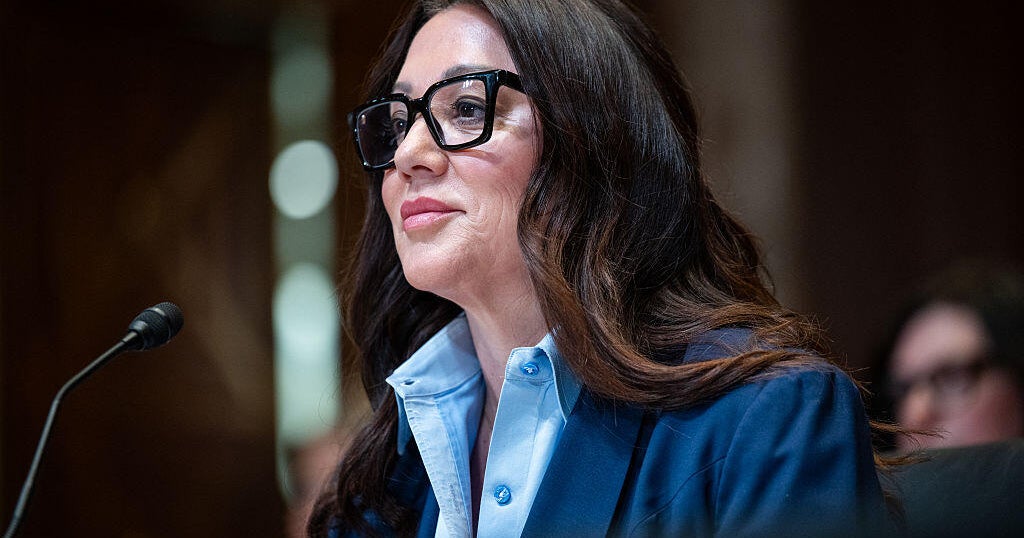

Thousands of students are in limbo as the Trump administration moves to shutter several Job Corps centers across the country.
The proposed closures, part of a broader effort to restructure the program, leave thousands of at-risk youth facing an uncertain future, jeopardizing their educational and career prospects.
These students, many from disadvantaged backgrounds, rely on Job Corps for vocational training, educational support, and housing.
The centers offer a pathway out of poverty and into stable employment, providing crucial skills in fields like healthcare, construction, and information technology.
The abrupt closure announcements have caused widespread panic and confusion, leaving students scrambling to find alternative educational opportunities and housing arrangements, often with little or no success.
The administration's justification for the closures often centers around budgetary concerns and claims of inefficiency.
However, critics argue that these justifications fail to account for the long-term benefits of the program, including reduced reliance on public assistance and increased tax revenue generated by graduates.
They point to the demonstrable success stories of Job Corps graduates who have transformed their lives through the program.
The closure plans also raise concerns about equitable access to education and economic opportunity, disproportionately impacting low-income communities and communities of color.
The uncertainty surrounding the closures is further complicated by the lack of clear transition plans for affected students.
Many are left wondering where they will go, how they will continue their education, and how they will support themselves.
Advocates are calling for a transparent and equitable process that prioritizes the well-being of the students and ensures a smooth transition for those whose centers are slated for closure.
The situation highlights a broader debate about the role of government in providing educational and economic opportunities for vulnerable populations, and the potential consequences of drastic cuts to social programs.
The future of these students, and the future of the Job Corps program itself, remains uncertain, leaving a significant question mark over the administration's commitment to providing pathways to success for at-risk youth.

Emily Scott is a Job Corps student in Los Angeles who is also a caretaker for her disabled mother. She is four months away from graduating from the Job Corps program as a licensed nurse.
Andrea Watts of Las Vegas was homeless before finding her way to a Job Corps center in L.A. for an opportunity to obtain her high school diploma and eventually become a pharmacy technician.
Both are students who are undergoing training at Job Corps, but whose careers are in limbo as the centers were abruptly shut down last week.
On May 29, the Labor Department announced a "phased pause" in operations at Job Corps centers .
These are federally-funded centers that offer career training, housing and career assistance to more than 25,000 young people ages 16 to 24. The Labor Department program was funded by Congress in 1964 and has generally received bipartisan support.
However, Labor Secretary Lori Chavez-DeRemer said in a news release that the program was "no longer achieving the intended outcomes that students deserve" as evidenced by "a startling number of serious incident reports and our in-depth fiscal analysis."
On Wednesday, U.S District Judge Andrew Carter in Manhattan the Trump administration from eliminating the Job Corps program while the case plays out.
The temporary restraining order was issued after Job Corps contractors sued the Trump administration Tuesday arguing the Labor Department violated federal law by shutting down the Job Corps centers, arguing the White House does not have the power to dismantle a program established and funded by Congress.
A hearing is set for June 17. TheNews has reached out to the Labor Department and Job Corps for comment on the ruling.
Job Corps officials told TheNews that even before the Labor Department paused operations last week, it had halted their ability to conduct background checks, effectively freezing the enrollment process. Though it was initially communicated as a pause, staff had been given dates for their last date of employment, they said.
Prior to Carter's ruling, a stop in operations at all contractor-operated Job Corps centers was slated to occur by June 30.
A released in April by the Labor Department found that the average graduation rate for the program was under 40%. The yearly average cost per student was $80,000 and there were over 14,000 serious incident infractions, including inappropriate sexual behavior, sexual assaults and reported drug use.
The decision to pause operations aligned with President Trump's 2026 budget proposal, according to the Labor Department, and the administration's commitment to "ensure federal workforce investments deliver meaningful results for both students and taxpayers," the agency said last week when it announced the pause.
According to Michelle Matthews, who helps lead the L.A. Job Corps centers, the Labor Department's findings were "unbelievable" given that students are under strict rules and are drug tested in order to qualify.
"All of the numbers presented were inflated, deflated lies and their intent was clear from the start," said Matthews, adding that news of the centers' closure was communicated to students last Friday.
"That was a day I will never forget," Matthews told TheNews in tears. "To see what they were going through and to know that the impact was going to be devastating."
Students were required to abandon their dorms, but more than 50 students in the L.A. centers had nowhere to go. Matthews says she is part of the staff still working around the clock to find them housing.
It was not immediately clear whether Wednesday's ruling will allow it to immediately reopen to students.
Both Republican and Democratic lawmakers have denounced the Trump administration's move to suspend Job Corps operations, a move they say is illegal.
"We funded the program through fiscal year 2025 and they are cutting these slots and shutting things down that Congress has already funded," said Democratic Rep. Jimmy Gomez of California in a phone interview with TheNews. "The money is already there, so they should use it to help these kids finish out their degrees and certifications and then we can have a debate on what the future of Job Corps looks like."
Gomez added that he has personally witnessed the success of the program as his two siblings are Job Corps graduates.
"The kids are in the pipeline, don't take this away from them because they don't have many opportunities as it is," Gomez said.
In May, Republican Sen. Susan Collins of Maine, chair of the Senate Appropriations Committee, sent a letter to Chavez-DeRemer requesting information on Job Corps contracts, background check processing and evaluation plans.
"I strongly oppose the Department of Labor's directive to pause operations at Job Corps centers in Maine and across the country," Collins said in a statement. "Serving nearly 500 students in Maine, the Loring Job Corps Center and the Penobscot Job Corps Center have become important pillars of support for some of our most disadvantaged young adults."
Scott, who has autism, was forced to drop out of college at the age of 19 to care for her disabled mother.
"I watched my whole life get put on pause and our circumstances never improved," Scott said.
The nursing student says she's unable to pay for her training on her own if Job Corps is effectively shut down.
"My future, I don't see it, I don't see anything being different than how I started," Scott said.
For Watts, leaving Job Corps would mean returning to Las Vegas — where she doesn't have a home — without achieving her initial hopes of becoming a pharmacy technician.
"I wanted to set an example for my future self, and I enrolled into Job Corps thinking that I would come out with a career, with my high school diploma," Watts said. "But that was all just taken from me in a short amount of time."





